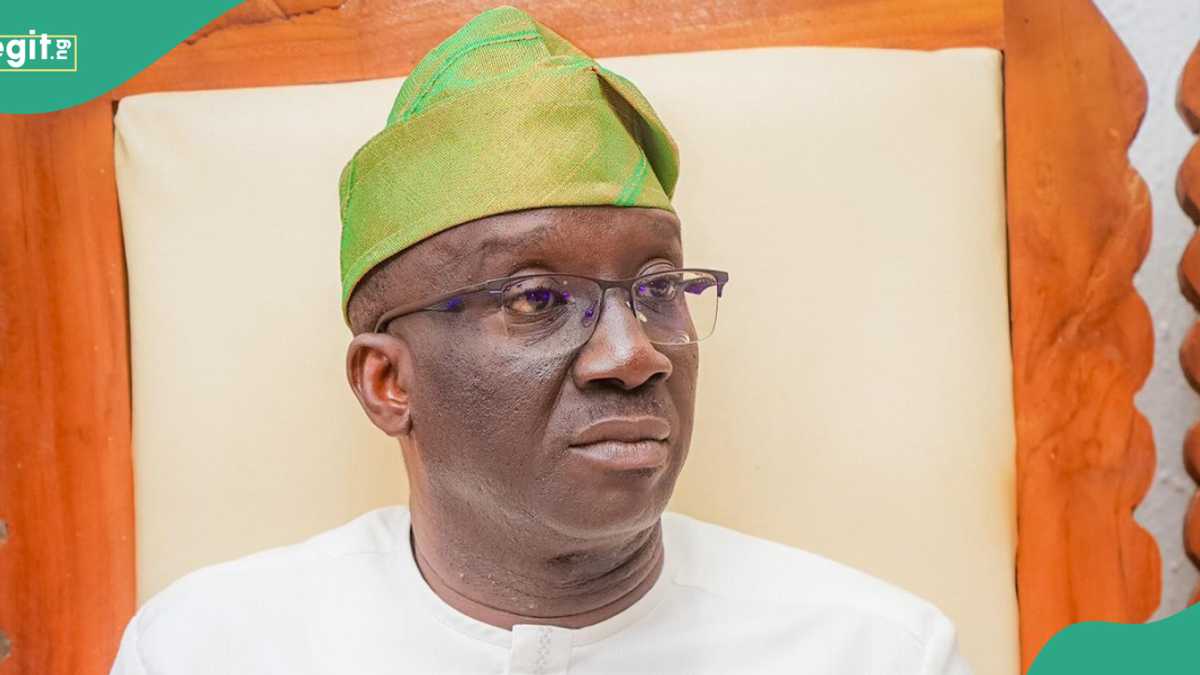The Tertiary Education Trust Fund has expressed readiness to establish a “learn to work” scheme in Nigerian campuses in collaboration with industry partners to provide outsourcing employment opportunities for Nigerian students while studying in schools.
The scheme which will link qualified students with industries globally, could guarantee their employment as soon as they graduate from tertiary institutions.
According to a statement, Tuesday, signed by the Fund’s Director of Public Affairs, AbdulMumin Oniyangi, the Executive Secretary of TETFund, Sonny Echono disclosed this at a meeting with the leadership of the National Association of Nigerian Students in Abuja, on Monday.
He described the scheme as “A big programme coming to you on campus.”
Echono added, “This programme will ensure that while you are doing your own academic programmes in various subject areas, you would be given an opportunity to be trained in various areas of ICT, and technology, and also be attached to global companies so that you can get outsourcing work while you are in school and you will earn significant income.
“So for the students who are going to key into this programme which will be launched very soon on a national scale. We are supporting all the institutions to be able to create the conditions where these students are learning.”
According to him, students from countries such as Vietnam, India, Cambodia, China and others were already enjoying the programme, adding that 24 million Indian students were earning these funds while in school.
He continued, “Learn to work will provide opportunities for Nigerian students to be able, even in the course of their work, earn a living and to be guaranteed employment immediately they finish their school.
“It’s happening in Africa, it’s happening in Tanzania, Rwanda, it’s happening in South Africa, it’s happening in Egypt, Morocco and Algeria.”
The TETFund boss also noted that the government recently launched the student loan scheme because it felt that no Nigerian student should drop out of school because of the economic circumstances of the parents.
He further stated that once the scheme is launched, the partners will visit institutions and administer aptitude tests on students to select those who can meet their criteria for selection before engaging them in training.
According to him, the training will be on over 40 disciplines, where they have designed curriculum standardised and tied it to the needs of the particular sector and industry, adding that many companies around the globe today are having issues around hiring.
He further stated that the engagement will be spread to all tertiary institutions across the country and not only limited to Abuja and Lagos.
Speaking on universities’ revenue, he described the education sector as a social sector and not a revenue-generating sector, stressing that “when you say Institutions: universities, polytechnics and colleges of education should start contributing of 50 per cent IGR, they really don’t have IGR.
“These are just service charges that are far less than what is required for them to operate, and if you try and take that one from them too, invariably, you are asking them to begin to charge our own students and to transfer that burden.
“So again our father has said we should not charge that to the schools. So we are very thankful again to Mr President for that. There are so many things he is thinking and doing for the students.
On the provision of electricity on the campuses, he said TETFund has commenced conversations, with relevant stakeholders such as the Ministry of Power to find a way to address the issue of power supply in its beneficiary institutions.
“It’s going to be one of the major issues we are going to look at when we call our major stakeholders meeting of all heads of schools. We have to put our heads together to see how we need to have alternative power sources that will reduce the burden.
“As I speak, some universities are getting N300 million, N400 million bill for electricity in one month. How can they cope? Some are even rationing; they have light for only four hours a day.
“So all these things we are talking about improving your learning experience, being able to access the internet, being able to access learning resources, educational content. If you don’t have power how can you do that.
“We are working assiduously to ensure that the issue of power on campuses is addressed. We are looking at all the options on our table,” he said.
He also called on the students to watch their campuses, should there be a national protest, to avoid hoodlums infiltrating them to cause havoc.
Also speaking, the National President of NANS, Comrade Lucky Emonefe, noted that the association has received President Bola Tinubu’s message on his love and dedication to education and resolved not to engage in the national protest.
Emonefe said the commitment of the government towards ensuring an uninterrupted academic calendar was obvious in its negotiation with the Academic Staff Union of Universities, ASUU, which has brought stability to the institutions in the last year.
He noted that people were agitated and thinking of using Nigerian students, mobilising them in their various campuses for national protest. Still, NANS will not be drawn to the protest as it has no good result in the offing.
“We’ll pass the message to our people about what this administration is doing through the world-class intervention agency, TETFund,” he said.

 3 months ago
7
3 months ago
7















 English (US) ·
English (US) ·